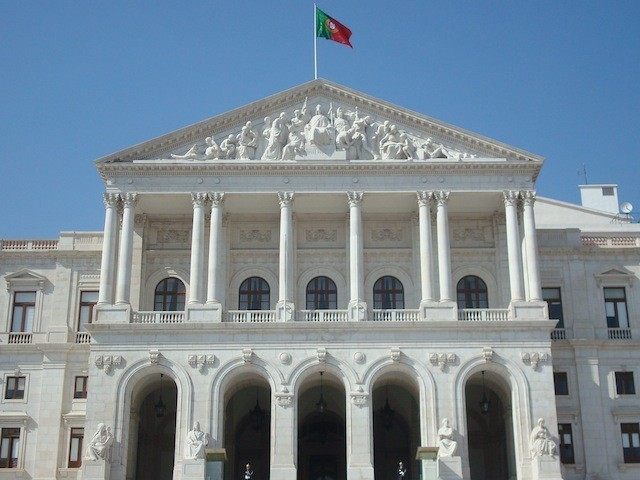Portugal, which expelled its Jews in 1536, is now poised to adopt a “return law” for the Jewish and non-Jewish descendants of Portugal’s Sephardi Jews. This law was passed in 2013 and is expected to become “effective” by March 2015.
Portugal’s Inquisition against the Jews—especially against those who had converted to Christianity—was brutal and long-lasting. Fiendish methods of torture were employed: racking, “relaxation” (burning at the stake), perpetual slave labor, burning at the stake. All Jewish goods were confiscated. At least 40,000 Jews were tried, impoverished, tortured, murdered, or exiled.
Some Jews managed to flee. Many of these Jews had previously fled Spain during the Spanish Inquisition against the Jews and against Jewish converts to Christianity who were suspected of secretly practicing Judaism. A great hero—actually, a heroine– of the Jewish people, Dona Gracia Ha Nasi (Beatrice de Luna Mendes), saved many of the Jews of Portugal.
Beatrice’s family fled Spain in 1492 and were forcibly baptized in Portugal in 1497. Beatrice was born in 1510, and became enormously wealthy through marriage; in 1536, she fled Portugal for London, Antwerp, Venice, Ferrara, and finally to Constantinople. Dona Gracia funded the “underground” flight of Portuguese Jews, not only to Turkey but also to Salonika.
Victor Perera, a Guatemalan descendant of Portuguese Jews, has written a beautiful and painful family autobiography, The Cross and The Pear Tree: A Sephardic Journey. His ancestors fled Toledo, Spain, for Lisbon, Portugal, and thereafter went to Bordeaux and eventually to South America. Many converted, many remained “secretly Jewish.”
Did Portugal rescue Jews during the European Holocaust?
It did, at least in a small way. Portugal became a “safe haven for thousands of Jewish refugees who arrived on temporary visas, making Lisbon one of the most important transit points for Jewish refugees fleeing Nazi-occupied Europe. Among those who sought refuge in Portugal were hundreds of Sephardi Jews who had been granted provisional Portuguese nationality in the first decades of the twentieth century due to their statue as ‘Oriental Jews of Portuguese Origin.’”
Again, a single hero was responsible for this—bravely so, after France fell to Nazi German forces. His name was Aristides de Sousa Mendes, the Portuguese consul in Bordeaux. Against orders, he issued 2,862 visas between January 1 to June 22, 1940. For these “extraordinary humanitarian efforts, Sousa Mendes was sentenced, dismissed from office, and viciously condemned by Portuguese President Antonio de Oliveira Salazar.”
In 1966 Israel’s Yad Vashem recognized Sousa Mendes as Righteous Among the Nations.
Now, six centuries after Portugal first expelled its Jews, the country is ready to open its doors to the descendants of formerly Spanish-Portuguese Jews. This “law of return” has been described as “an act of atonement.” Similar legislation is “underway in Spain, where it awaits a final vote in Congress.”
This is ironic, pathetic, utterly tragic, rather late-in-the-day, rather generous, but potentially dangerous since this is being offered just as Europe’s Jews are contemplating leaving Europe. Can Portugal be trusted? Are the people of Portugal and Spain pro-Jewish?
According to a 2013-2014 ADL Index, 56% of Portugal’s 8,652,842 citizens believe that “Jews are more loyal to Israel than to the countries they live in;” 49% believe that “Jews still talk too much about what happened to them in the Holocaust;” 45% believe that “Jews have too much power in the business world;” and 43% believe that “Jews have too much power in international financial markets.”
In other words, nearly 50% of Portugal’s living citizens hold views that may be termed “anti-Semitic.”
According to a 2012 ADL poll of Spanish citizens, their anti-Jewish views are even more extreme. 72% believe that “Jews are more loyal to Israel than to this country;” 60% believe that “Jews have too much power in the business world;” 67% believe that “Jews have too much power in international financial markets;” and 47% believe that “Jews still talk too much about what happened to them in the Holocaust.”
In general, Europeans hold unfavorable view of the Roma as well as mixed views about Muslims. According to Pew Research, a survey in Spain revealed that 46% of those polled had views that were “critical of Muslims.” But 49% held favorable views of Muslims. Left-right differences existed: only 38% of Spain’s “leftists” as compared to 54% of Spain’s “right wing” held such unfavorable views.
However, this 2014 Pew Research contradicts the ADL on Spain’s level of anti-Semitism. Here, only 18% of Spaniards polled had “unfavorable views of Jews” as compared to 72% who held “favorable views” of the Jews living in their country.
Information from polls can take us just so far.
I hope that the descendants of Spain and Portugal’s original Jews decide very carefully and wisely about whether or not to return to Portugal. Like France, Portugal may realize that it needs its Jews; do the Jews need Portugal?

COMMENTS
Please let us know if you're having issues with commenting.